
A session at AMCP Nexus on the use of artificial intelligence (AI) and machine learning (ML) in managed care highlights some real-world examples of successful implementation of these technologies.

Skylar is an associate editor for The American Journal of Managed Care® (AJMC®) and The Center for Biosimilars®, and joined AJMC® in 2020. She is responsible for covering all aspects of the ever-changing global biosimilar industry and produces content that is accessible and informative for all health care stakeholders.
She has a BA in journalism and media studies from Rutgers University. You can connect with Skylar on LinkedIn.

A session at AMCP Nexus on the use of artificial intelligence (AI) and machine learning (ML) in managed care highlights some real-world examples of successful implementation of these technologies.

The level of biosimilar market sustainability differs between countries, largely due to variances in biosimilar policies and years of experience managing a biosimilar market.

The annual fall meeting of AMCP Nexus 2023 will feature discussions on the evolving managed care landscape, including the impact of the Inflation Reduction Act, the specialty pharmaceutical pipeline, insight into the growing use of diabetes drugs for weight loss, and more.

The FDA has approved Tofidence, the first tocilizumab biosimilar in the United States, which will be used to treat rheumatoid arthritis, polyarticular juvenile idiopathic arthritis, and systemic juvenile idiopathic arthritis.

A new study confirmed the validity of a blood test that can diagnose patients with GLUT1 deficiency syndrome, a treatable neurometabolic disease that causes a wide range of neurologic symptoms in children and adults, including seizures.

A report from the Association for Accessible Medicines (AAM) highlighted the value of biosimilars and generics, revealing that lower-cost versions of originator products accumulated $408 billion for the US health care system in 2022.

Cordavis is a new subsidiary from CVS Health Corporation that will work with manufacturers to commercialize and coproduce biosimilars, beginning with an adalimumab product.

The FDA approved a higher dosage of aflibercept (Eylea) for the treatment of age-related macular degeneration, macular edema, and diabetic retinopathy.

The Biden administration has released the first 10 drugs subject to price negotiation with Medicare under the Inflation Reduction Act (IRA), and among those chosen were Stelara (ustekinumab) and Enbrel (etanercept), both of which will face biosimilar competition within the next decade.

Joseph Mikhael, MD, MEd, FRCPC, FACP, chief medical officer of the International Myeloma Foundation, highlights several potential strategies to address the historic lack of diversity in multiple myeloma clinical trial populations.

Jennifer Brown, MD, PhD, director of the Chronic Lymphocytic Leukemia Center at Dana-Farber Cancer Institute, discussed the uptake of zanubrutinib for the treatment of chronic lymphocytic leukemia (CLL) and small lymphocytic leukemia (SLL).
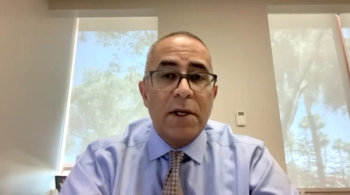
Researchers and organizations must collaborate to address the persistent disparities in access to treatments for multiple myeloma, explained Joseph Mikhael, MD, MEd, FRCPC, FACP, chief medical officer of the International Myeloma Foundation.
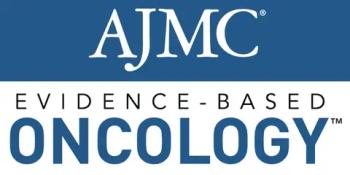
Interviews on research presented at the European Hematology Association 2023 Hybrid Congress, which took place June 8-11 in Frankfurt, Germany

Full team coverage from the European Hematology Association 2023 Hybrid Congress, which took place June 8-11 in Frankfurt, Germany.
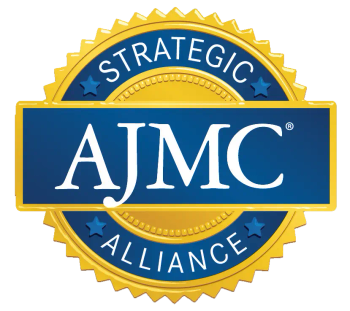
Coverage of research presented by Strategic Alliance Partners: OneOncology, Florida Cancer Specialists & Research Institute, and The US Oncology Network.

A white paper crafted by the Association for Accessible Medicines (AAM) outlined that main causes of generic drug shortages and recommended several actions for stakeholders to remedy current shortages and prevent future ones.

Data from the Survey of Unmet Needs in Chronic Myeloid Leukemia (CML SUN) trial show that quality of life (QOL) and shared decision-making are priorities for patients, said Fabian Lang, MD, of Goethe University Hospital in Frankfurt, Germany.
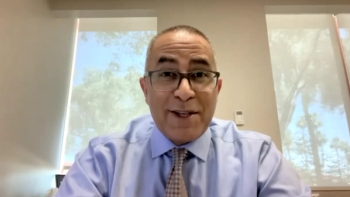
Joseph Mikhael, MD, MEd, FRCPC, FACP, chief medical officer of the International Myeloma Foundation, discussed the manufacturing challenges sometimes seen with chimeric antigen receptor (CAR) T-cell therapies and strategies being implemented to improve access for historically underserved patients.
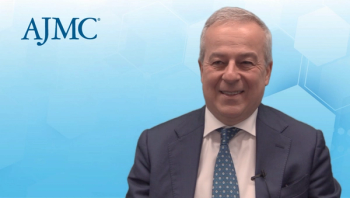
Franco Locatelli, MD, PhD, head of the Department of Pediatric Hematology and Oncology at IRCCS Bambino Gesu Children’s Hospital in Rome, discusses the treatment of both adult and pediatric patients with chronic graft versus host disease (cGvHD).

Even at a steep discount, the list prices of new adalimumab biosimilars are significantly higher than the original price of the originator product (Humira), highlighting how dramatically its list price has risen over the years.

Bispecific antibodies or chimeric antigen receptor (CAR) T-cell therapies are both associated with an increased risk of infection for patients with multiple myeloma (MM), explained Hans Lee, MD, of The University of Texas MD Anderson Cancer Center.

In a disease such as chronic myeloid leukemia (CML), shared treatment decision-making between providers and patients is key, said Fabian Lang, MD, of Goethe University Hospital in Frankfurt, Germany.
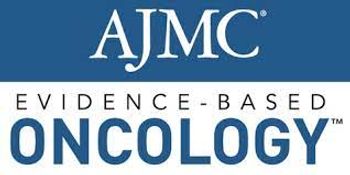

Courtney DiNardo, MD, MSCE, the lead author on a study presented at EHA 2023 evaluating a new therapy for chronic myelomonocytic leukemia and acute myeloid leukemia, discusses the FDA Fast Track Designation for IO-202 and strategies for raising awareness and improving diversity in clinical trials.

Martin Griesshammer, MD, PhD, from the Johannes Wesling University Clinic, spoke on the current unmet needs in treating polycythemia vera (PV) and how multistakeholder collaboration can help address them.

More data is emerging on the efficacy of several triplet therapies to treat single-class refractory multiple myeloma (MM), potentially giving patients more therapy options than ever before, according to Tel-Aviv Sourasky Medical Center's Yael Cohen, MD, at the European Hematology Association 2023 Congress.

Wojciech Jurczak, MD, PhD, lead researcher on the L-MIND study evaluating a new treatment combination in diffuse large B-cell lymphoma (DLBCL), gave an overview of the trial results that were presented at the European Hematology Association 2023 Congress.

Jennifer Brown, MD, PhD, Dana-Farber Cancer Institute, shared her thoughts on the current research regarding Bruton tyrosine kinase (BTK) and B-cell lymphoma 2 (BCL-2) inhibitors in chronic lymphocytic leukemia (CLL) and what providers should keep in mind before prescribing them.

MD Anderson Cancer Center's Hans Lee, MD, shared considerations for possible infection risk associated with bispecific therapies used to treat relapsed/refractory multiple myeloma (MM) at the European Hematology Association 2023 Congress

The Mark Cuban Cost Plus Drug Company, an online pharmacy dedicated to increasing access to lower-cost prescriptions, is partnering with Coherus Biosciences to distribute Yusimry, a biosimilar referencing Humira. It’s the first time the pharmacy has added a biosimilar to its list of drugs.

259 Prospect Plains Rd, Bldg H
Cranbury, NJ 08512
© 2025 MJH Life Sciences®
All rights reserved.
